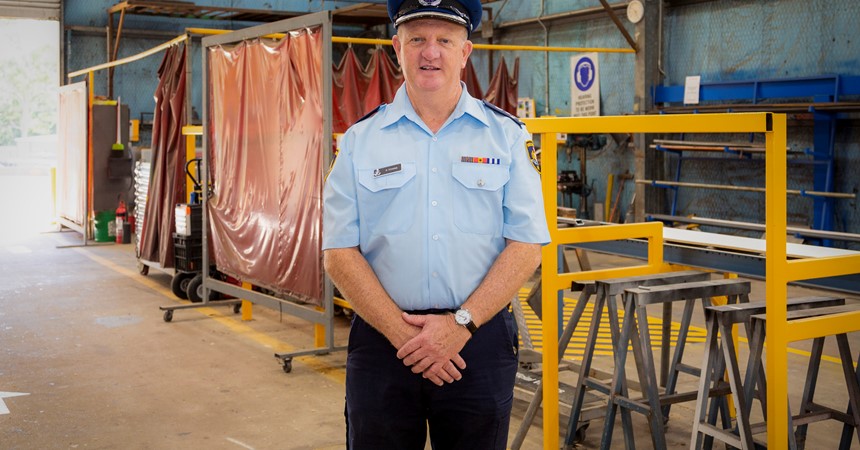Kelly Pavan is Counselling & Clinical Services Manager – Psychologist for CatholicCare Social Services Hunter-Manning. She notes from NSW Bureau of Crime statistics and other research that recidivism, or re-offending rates, within 12 months of release sit at 40 per cent for adults and 60 per cent for juveniles.
“Providing additional support for an effective transition from custody into the community is essential,” says Ms Pavan. “Family, relationships, vocational options and even technology can move on significantly while prisoners are away.
“Creating a new life and assimilating into the community can be incredibly daunting. I worked with a former inmate who was released after 20 years. He struggled with learning automatic bus passes, using a smart phone and even listening to music in a post cassette/post CD world.
“It was like he’d stepped out of a time machine. He was also faced with an exponential number of daily choices after many years of living a structured and regimented life.
“Little wonder he needed counselling to manage these overwhelming feelings.”
Fortunately, that is not always the case. In their combined 35 years at Cessnock’s Corrective Services Industries, Pat Towns and Mat Beacher have given thousands of inmates a second chance.
The pair respectively lead the maintenance and business units at the Lindsay Street complex, which equip inmates with the skills, work ethic and qualifications to secure a job in a range of construction and trade industries.
Maintenance operations manager Mr Towns says it is rewarding to give people the opportunity to lawfully provide for their families.
“Inmates walk in our doors with limited experience and through Corrective Services Industries leadership and guidance they leave with employable skills and a work ethic that provides them with choices,” says Mr Towns. “They go on to secure apprenticeships, tertiary education or their own business.
“I was in a supermarket recently and bumped into one of our former inmates and he was telling me he now runs his own electrical company and employs three staff. It was a trade he achieved while in custody at Cessnock.”
Both officers put their success down to a commitment to mentoring inmates and getting them work-ready to ensure a positive transition into the community.
“A lot of the inmates come from backgrounds and personal circumstances that mean this is their first time in a job where they have to wake up at 6am, clock seven hours on the job, and turn up five days in a row,” says Mr Beacher.
“We take eligible inmates to Services NSW to teach them personal administration skills such as keeping operating licences up to date. Real-world lessons cannot be taken for granted.”
The workplace environments in Cessnock Correctional prepare inmates for their release from custody and give them the best chance of becoming contributing members of the community.
The Cessnock complex employs 500 inmates and 45 staff in 11 areas, from food services and furniture production to powder coating, demountable construction and the new textiles unit.
The Cessnock maintenance team employs 60 inmates to look after the needs of Cessnock, Hunter and Shortland correctional centres, including plumbing, electrical and all repair work.
Further up the Hunter Valley, the St Heliers Correctional Centre at Muswellbrook is also making good jobs for inmates easy to find.
A unique partnership between St Heliers and Blackrock Industries, a 100 per cent Indigenous-owned service company providing people and equipment to mining and civil projects, has resulted in more than 60 Aboriginal inmates being offered employment opportunities while in prison and upon their release.
“A lot of the guys don’t quite understand that criminal history doesn’t really affect them as much as it used to, and that there are lots of people who want to give them opportunities for employment and a better path in life,” says prison staffer Paul Boyce.
Mr Boyce is committed to community safety and reducing reoffending. St Heliers also has successful works-release business partnerships with Mach Energy, Dreampath, Sedgman, Thiess, North West Mining and Speedy Staff Solutions.
“The aim is to get them employed,” says Mr Boyce. “It’s about creating confidence within individuals through education and employment so that they work towards making smarter decisions, developing pro-social networks and understanding that they may not be able to change their past, but they can fix their future.”






















































































